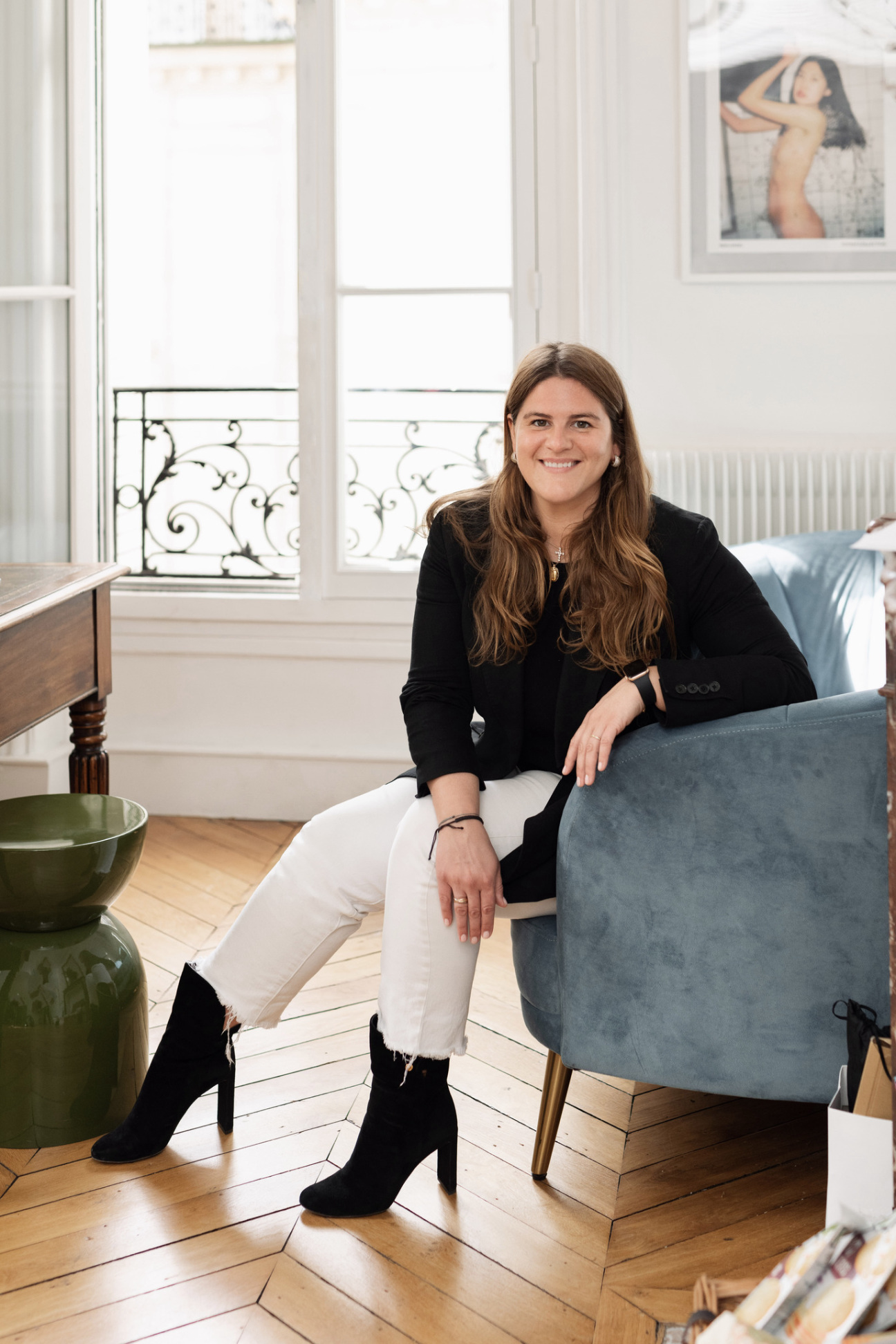
Paris Fashion Week is upon us. The last in a month of activations across Europe and New York, the 10-day-long event will see the sartorial set descend upon the French capital, which is already thrown off balance by preparations for this summer’s Olympic Games. With directorial debuts for Chemena Kamali and Seán McGirr at Chloé and Alexander McQueen respectively; runway comebacks for Vetements, Off-White, and Marine Serre; and career-defining presentations for LVMH semi-finalists Duran Lantink, Marie Adam-Leenaerdt, and Niccolò Pasqualetti, a lot is riding on this season’s coda.
Who better to break the ice with than Alexandra Van Houtte, former stylist, Parisienne par excellence, and founder of Tagwalk? For just under a decade, her company has been coming to the rescue of stylists, and stylist assistants, everywhere. Tagwalk is a free fashion search engine: At the click of a finger—and with a few key words—you can find any runway look. This wealth of data allows for Van Houtte and her team to assemble pace-setting reports on the trends of the moment (think glittery, officewear, or animal print), along with broader industry indicators like size and age diversity. It's a welcome barometer for an ecosystem that has often defined itself by exclusivity over inclusion.
Below, Van Houtte dishes on the spot she'll steer clear from this week, what shows she's looking forward to, and why talent isn't enough for emerging designers to make it in Paris.
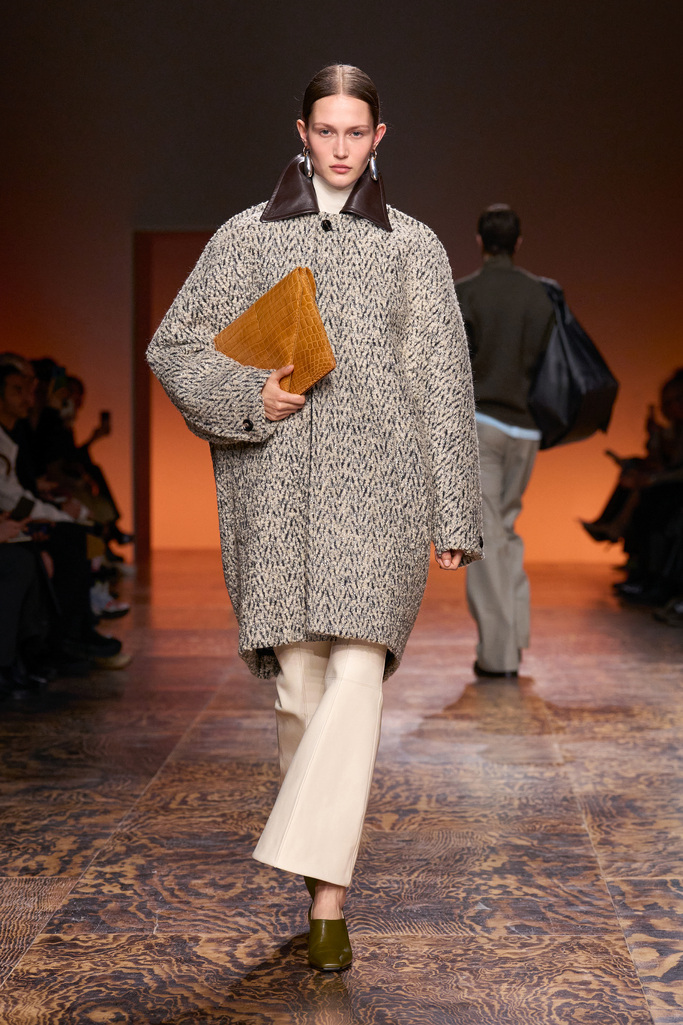
CULTURED: You just came back from Milan last night. What are your takeaways? How was the energy?
Alexandra Van Houtte: Milan had very low energy. Bottega Veneta was definitely the winner; the collection was exceptional. I thought Gucci was much better than last season, but globally the brands didn't offer much. There were a lot of dark colors, not really any trend innovations.
CULTURED: Do you feel like that's been a throughline this fashion month?
Van Houtte: London was really good this season. They had a lot of good young designers that really came through. Casting diversity was much stronger [there]. In Milan, I only saw one curvy person on the runway, whereas in London, they had up to 47 percent of designers who had curvy people included.
New York was interesting because of Ludovic de Saint Sernin. For him, Paris is a difficult city because there's so many other big brands; when you're competing with Saint Laurent and Louis Vuitton and Miu Miu, you're kind of lost within the mix. New York really let him shine. It's also about being clever enough to understand when to pull out and when to come back in. Obviously moving away from Paris Fashion Week is difficult. Paris is the best—in terms of numbers, in terms of traffic—but I think for younger designers, Paris isn't the best unless you really excel.
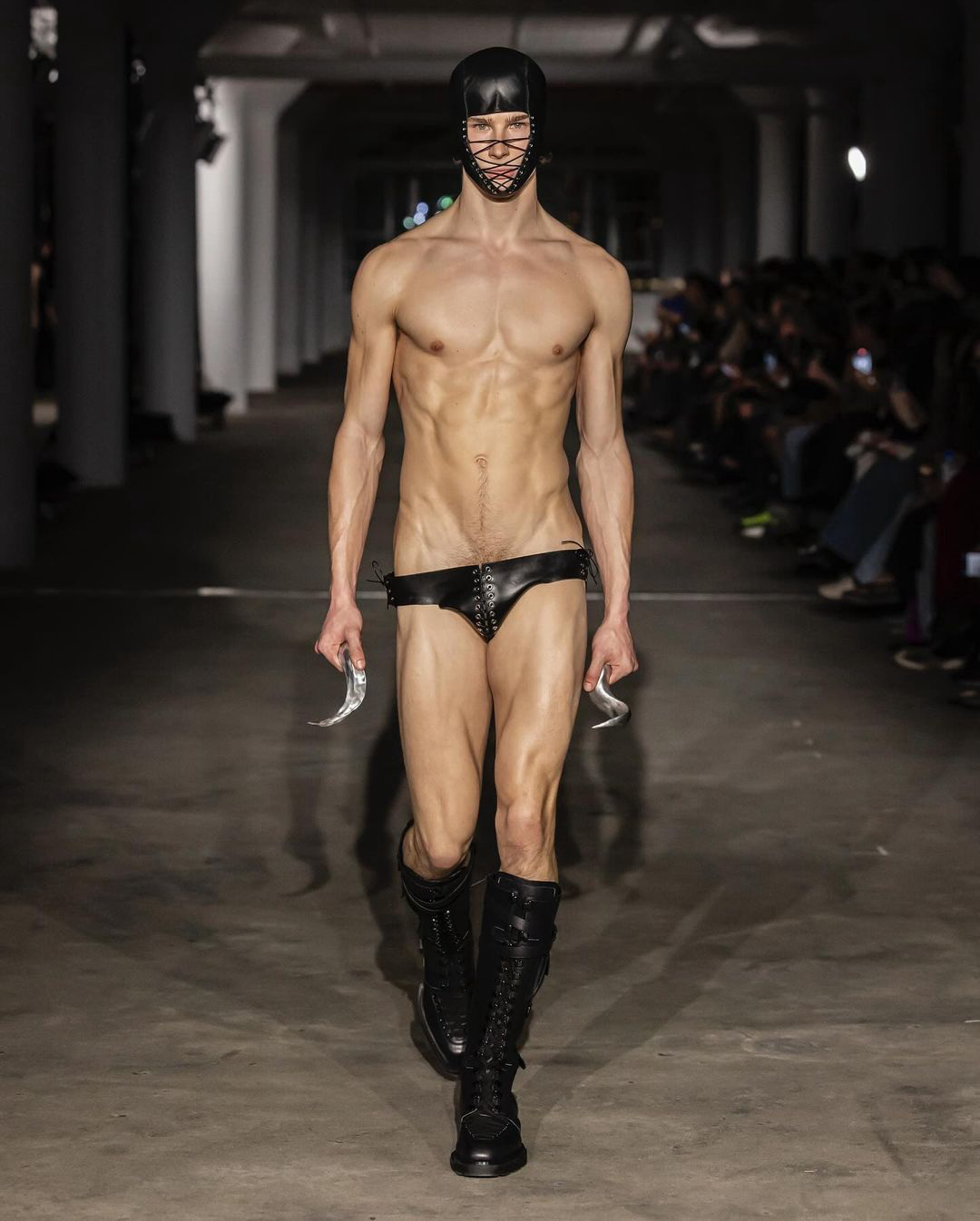
CULTURED: Let’s talk a bit about your own evolution. I know you founded Tagwalk in your apartment in 2015—almost a decade ago. What’s been the most surprising thing about that experience?
Van Houtte: I started Tagwalk very naively because I needed it for myself as a [stylist] assistant. When you're 26 and you launch a company on your sofa, I think you have less ambition than when you're 35 and you have more responsibilities in life. That's the power of being young. What I like is how Tagwalk’s business plan slowly created itself over the years with the needs of my clients. It's been constructed by what people from the industry needed.
I've been very tough for the last seven years about really not wanting people to pay to be on Tagwalk, not wanting brands to be better referenced because they have more money. Ultimately, what I’ve stood for over the years has made my data incredibly clean. I was never pushing Dior more than Gucci, more than Prada. Everything is in alphabetical order. Nowadays, we're starting to put brands on banners on the home page, but what we do is, anyone who clicks on the banner, that data is excluded for 24 hours so we make sure that it doesn't influence people.
CULTURED: How has Tagwalk’s audience evolved over time?
Van Houtte: We have never ever spent a single euro on marketing. We just don't have the money to do it. I'd rather spend money on tech or hiring someone great. So what's interesting is how Tagwalk is purely word of mouth. It's literally people who go on it once and they’re like, “This is insane,” and then they tell their friend who tells their friend who tells their friend and we now have about 200,000 active users from the industry who come three times a week, 20 minutes per session. I created Tagwalk as an assistant for assistants, so it’s super easy to use whether you're 85 in a studio using it or 16 wanting to work in fashion one day. The audience is incredibly international, we have 20 percent in the U.S., almost 15 percent in China. I still don't know how I have all these people from these different countries, because I've never advertised it.
CULTURED: How are you going into Paris Fashion Week?
Van Houtte: Because Milan was a bit bland, we're expecting a lot from Paris to make sure we have something that's going to come out of these trends for Autumn/Winter ‘24. Right now, it's a ladylike woman with a long coat in camel brown, which is fine but quite dull. Since the end of Covid, there's been such a shift in womenswear. She's much calmer, much wiser, a bit more mature, a bit more elegant. So I'm just trying to figure out where this is going right now. The Miu Miu woman, for example, doesn't need to show skin in order to show she has power; she naturally has it.
CULTURED: You mentioned body diversity in Milan versus London. What has also made Tagwalk a resource over the years is that you have consistently kept track of representation, both in terms of body and age diversity and even the portion of female designers that are present each season. In New York, the Batsheva show featuring models only over the age of 40 made headlines. Would you ever see that happening in a European fashion week?
Van Houtte: The top 20 brands on Tagwalk are only brands from Paris and Milan. They capture the most attention and the most traffic, and they're not leading by example. An example is not just putting one slightly larger or slightly older person in the show, it's doing it consistently. There's no consistency in fashion right now. Brands tick a box one season and untick it the next. Unless there was a law saying you have to include 20 percent of models who are a size 8 or 20 percent who are a size 10, I just don't see why brands would change. They say clothes fall better on a skinny person.
The reality is, let me be honest, when they do put a curvy, larger person on the show, they don't even commercialize the piece. It means that they've hired someone, paid her to walk in a dress that's not even being commercialized in that size in the shop. I don't know what's worse. Not having anyone, or having someone but just for images. It's so reductive.
CULTURED: What makes Paris unique as a fashion capital?
Van Houtte: On Tagwalk, Paris pulls in about 50 percent of views, compared to Milan which is at 35 percent and then it's divided between London and New York. Paris has such a concentration of big designers and designers that take risks. Saint Laurent always does something which is going to be very different from Chloé, which is going to do something new under Chemena Kamali, who's going to be very different from the Balenciaga woman who's gonna be very different from Alexander McQueen under Seán McGirr.
You have so many different women who are represented. You have the cool one, the geeky one, the sexy one, the stuck-up one… It's quite a good map of what women will be looking like within six months to a year. Where Paris is less good is for younger designers who are being completely drowned by these bigger ones.
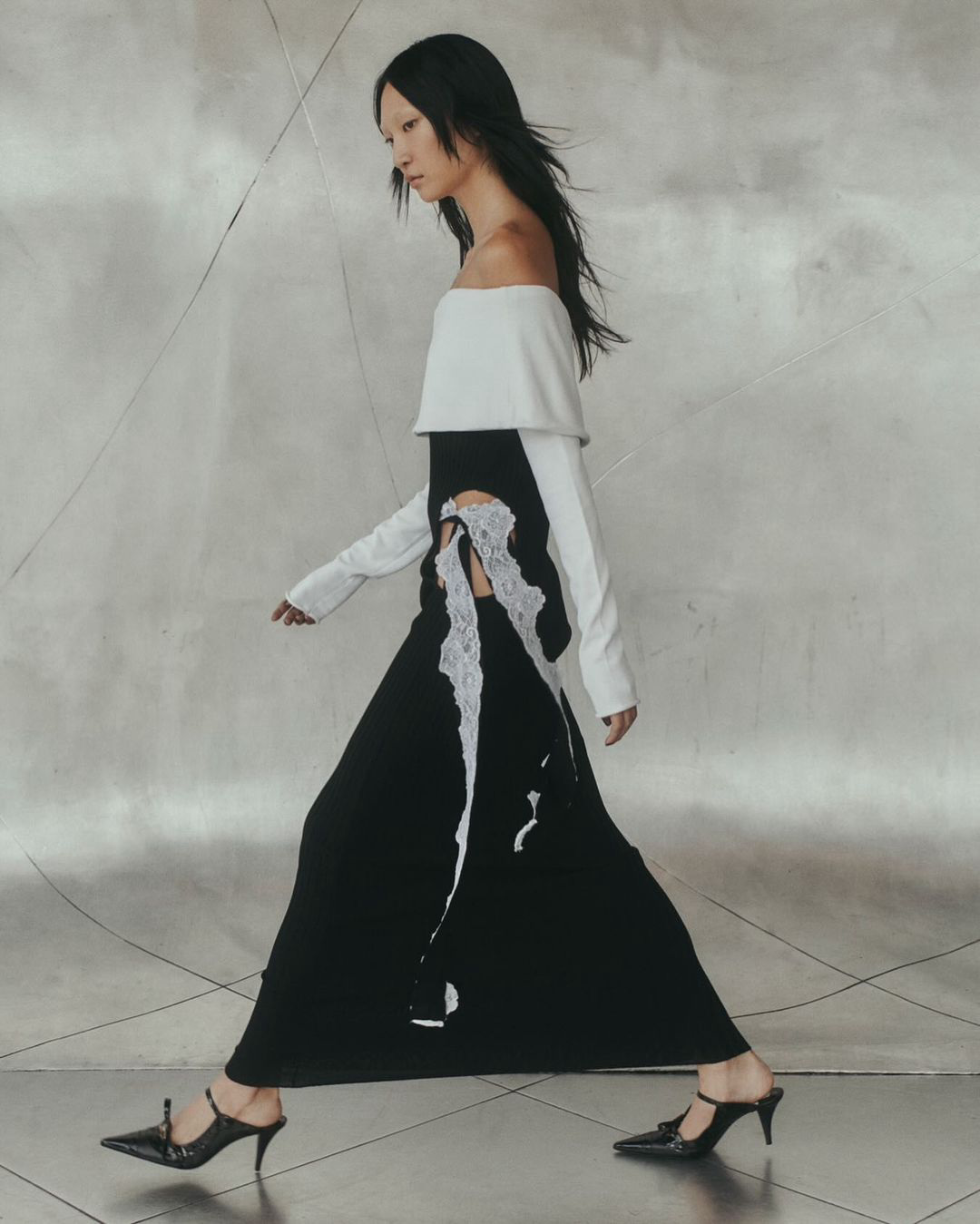
CULTURED: Are there some emerging designers that you do have your eyes on for Paris Fashion Week?
Van Houtte: I always like Vaillant. I think she does well with very little money so if she had a lot of money, it would be interesting to see what she could do. I like Duran Lantink. I think they're great. I like Louis-Gabriel Nouchi in menswear. But globally I'm not running to the younger designers. Sometimes they show too soon, and nowadays being a good designer isn't enough. You need the whole package. You need to be good at marketing, you need to be good at having the right friends… It's really sad because nowadays talent isn't really enough.
CULTURED: Are there bigger brands that you always look forward to?
Van Houtte: Loewe is always the one I want to see. It's my favorite show. His music is cool, he's smart, the art direction is cool, the clothes are good, the accessories are on point. I obviously really want to see Chloé. Her first campaign was smart. I always like Acne Studios; they have a good pulse on younger generations. Oh and Carven! I like what Louise Trotter does. Obviously Balenciaga just because this show is going to be crucial for Demna. It has to really, really deliver.
I always love Chanel. I actually think [Virginie Viard] is doing a really good job. The pieces are super wearable. I have a very different opinion from other people about Chanel. I always think it’s a brand that’s actually way more on pulse than we think they are. When you see Chanel pieces worn by younger people, they're so fucking cool. But then when you see an 85-year-old in the couture collection, she also looks fab in her own way.
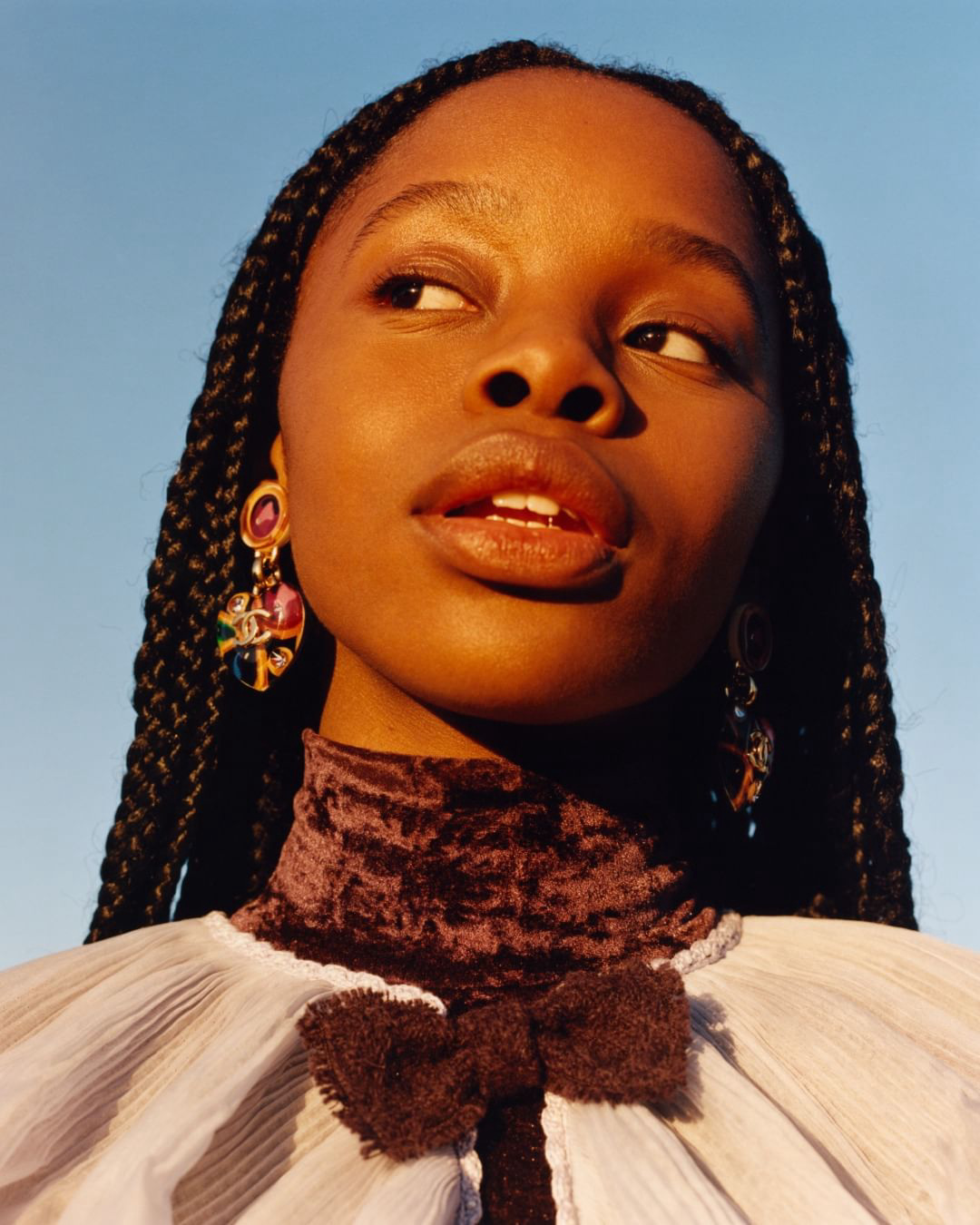
CULTURED: Before we wrap up, during Paris Fashion Week where do you go to unwind if you have 30 minutes? And three hours?
Van Houtte: If I have three hours, I go to Jaïs or Bistrot des Tournelles. If I have 30 minutes, I would probably go to Café de L’Époque next to the Palais Royal, and I would get a glass of white wine with a croque monsieur.
CULTURED: What is a place that you avoid at all cost during Paris Fashion Week?
Van Houtte: Le Costes. You could pay me, and I wouldn’t even go there. No way.
CULTURED: Is there an under-the-radar survival tip that you'd recommend for anyone for fashion week in Paris?
Van Houtte: Using a Lime bike is my number one survival tip. The traffic in Paris is so bad. If it's a sunny day and you want to be on time for shows, I would 100 percent take a bike. Number two, I never ever go to a show if I'm feeling tired and it's too late. The world's not going to die if you miss a show.
I missed a really big show in Milan because it was raining and I just didn't want to go. Honestly, I saw it online, and it was perfect. People who try to overdo it the whole time end up so stressed and with no energy left. Lastly, I always have nuts and a pack of Haribo in my bag. In case you don't eat or a show runs late, you always know you have something there.
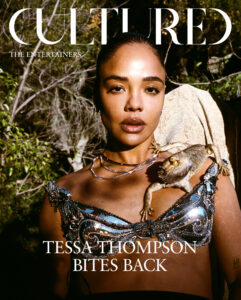
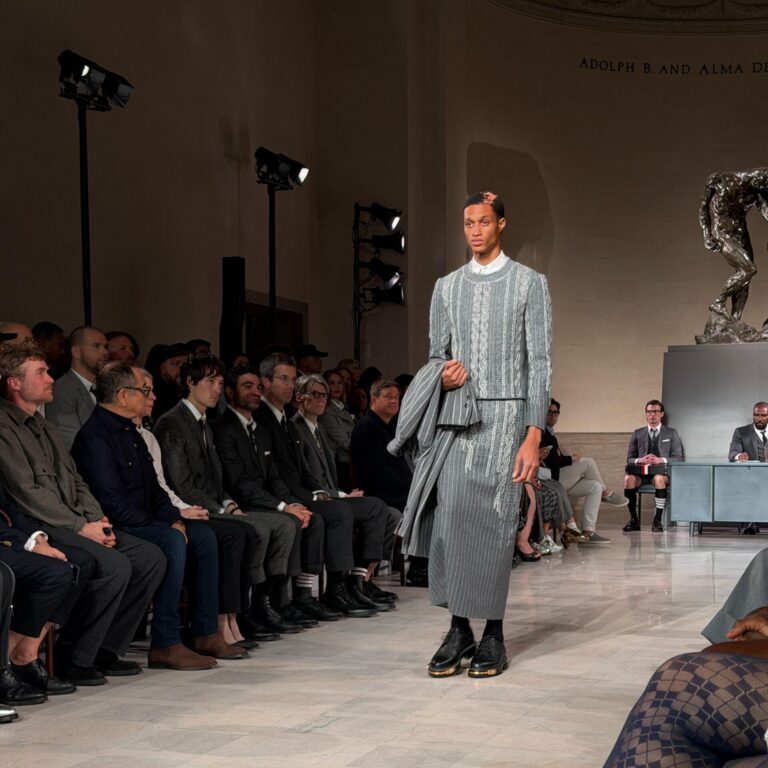
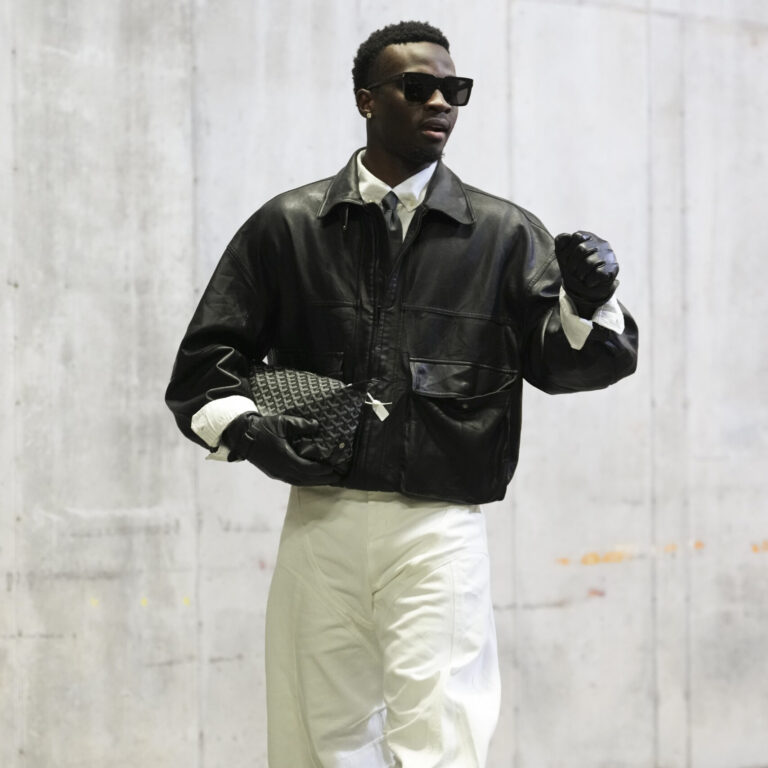
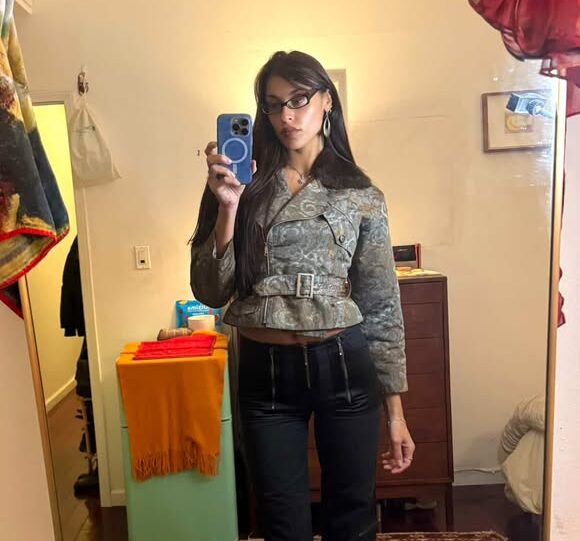
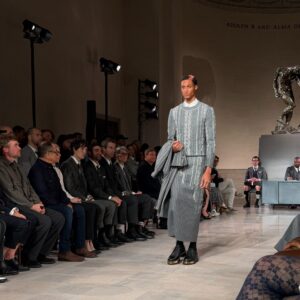
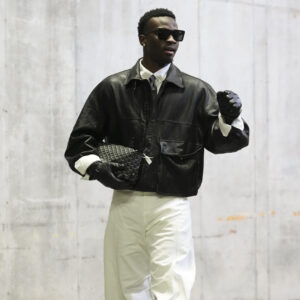
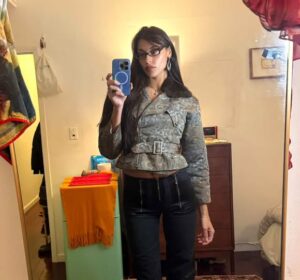

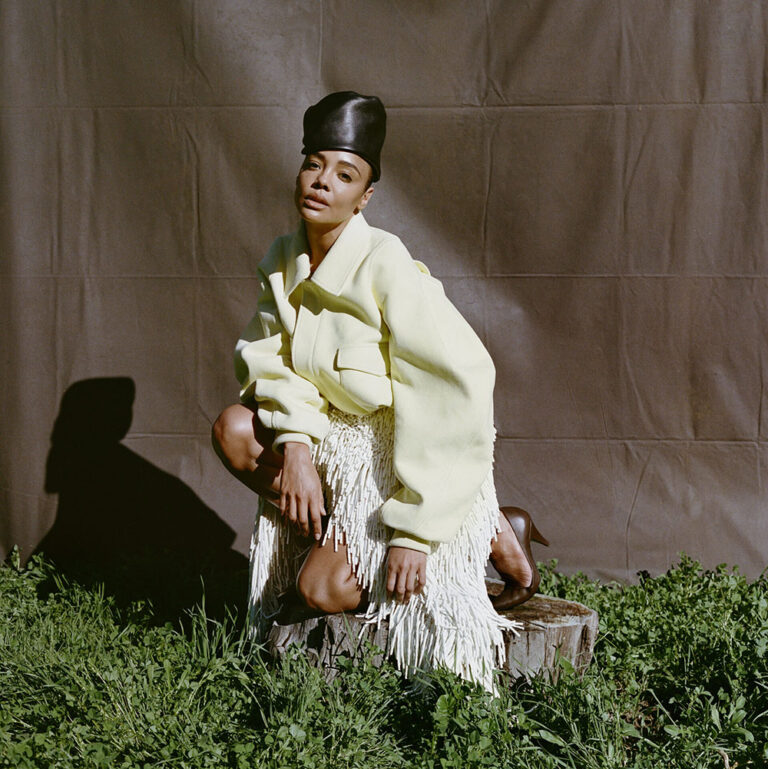

 in your life?
in your life?

